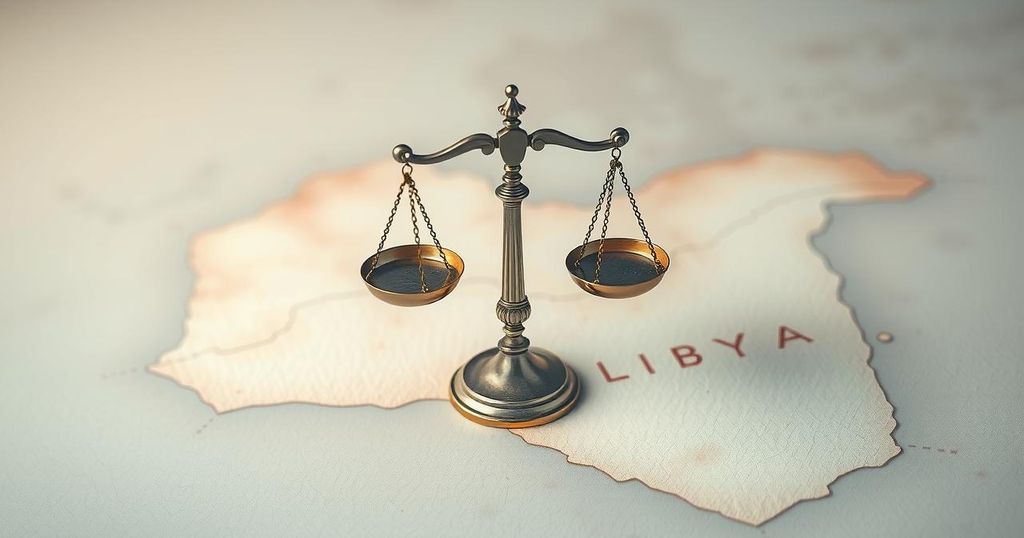The UN Security Council has expressed concerns regarding the precarious stability in Libya, as political divisions and economic challenges continue to persist. The newly appointed UN envoy is urged to facilitate national dialogue and elections to ensure a civil society. Security issues, ongoing human rights violations, and the plight of refugees exemplify the complexity of Libya’s situation, demanding urgent attention and solutions.
The ongoing instability in Libya continues to threaten the aspirations for a civil and prosperous society, 14 years post-revolution. Rosemary DiCarlo, the head of UN Political and Peacebuilding Affairs, informed the Security Council of the detrimental effects of entrenched divisions, economic mismanagement, and unresolved human rights violations on national unity. She expressed concern that “the fragile stability in Libya is increasingly at risk” due to political competition overriding national interests.
DiCarlo urged the Security Council to support the newly appointed UN Special Representative for Libya, Hanna Tetteh, in her quest to break the political impasse and stabilize the nation. Libya remains divided between two rival administrations, with the Government of National Unity located in the northwest and the Government of National Stability in the east. Landmarks like the planned elections of December 2021 were ultimately canceled amid disputes regarding candidate eligibility.
To foster progress, UNSMIL has established an Advisory Committee to offer solutions to contentious issues that have hindered elections, consisting of 20 members, including significant female representation. DiCarlo mentioned that many Libyan stakeholders see this committee as a positive step forward. UNSMIL recently conducted the committee’s inaugural meeting in Tripoli, where the members are expected to address long-standing conflicts and share insights on national matters.
DiCarlo highlighted persistent political divisions impacting economic stability, particularly the lack of a unified national budget. This standoff directly threatens effective financial governance and public spending, as evidenced by ongoing disputes within the High Council of State, leading to its inability to function as intended.
The challenges of politicization severely impede national reconciliation efforts, despite an agreement reached among key institutions on a draft law to guide this process. However, parliamentary modifications have raised concerns about the independence of a planned National Reconciliation Commission. A recent charter for reconciliation was backed by some Libyan groups yet faced opposition from others.
The influence of non-state and quasi-state armed groups continues to disrupt Libya’s stability. DiCarlo has called for a thorough investigation into an attack on a minister, highlighting the necessity of implementing the 2020 Ceasefire Agreement fully. Progress in these areas is crucial for the reunification and reform of Libya’s security institutions.
Moreover, DiCarlo voiced deep concerns regarding human rights violations like arbitrary arrests and increasing deaths in custody involving migrants and asylum-seekers. She highlighted the urgent need for investigations into recently discovered mass graves linked to human trafficking incidents, a situation that depicts the severe risks faced by migrants.
In addressing humanitarian needs, a joint mission in December focused on Sudanese refugees fleeing to Libya. The current response plan aims to assist 446,000 individuals, necessitating significant financial support from international donors, stressing the criticality of addressing these urgent needs across the region.
In summary, Libya’s fragile stability is further threatened by political divisions, economic mismanagement, and human rights violations. The UN continues to advocate for unity through its newly established mechanisms while urging international support for humanitarian efforts. However, the challenges remain substantial, with the need for transparent governance and reconciliation efforts at the forefront.
Original Source: news.un.org






